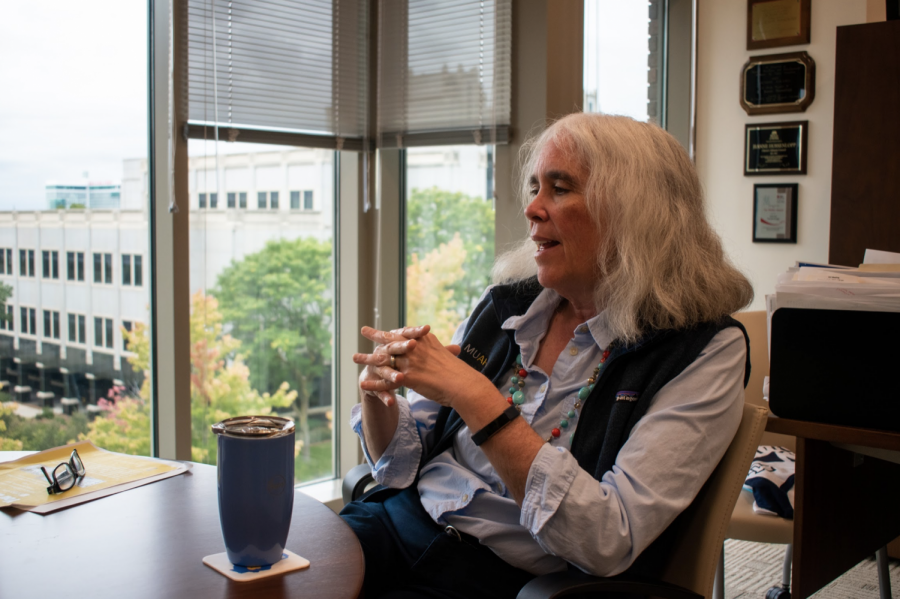Marquette University recently received a $1 million grant as an opportunity to improve its diversity.
According to a Sept. 19 Marquette University news release, the National Science Program gave the university the grant as part of its ADVANCE program.
ADVANCE programs are expected to use “intersectional approaches that recognize how gender, race, ethnicity and other social identities interact to affect the experience of individuals in the workplace.”
William Welburn, the vice President for inclusive excellence for Marquette’s Office of Institutional Diversity and Inclusion, said that the ADVANCE program is “a long-standing initiative of the National Science Foundation and a priority of theirs since 2001.”
Jeanne Hossenlopp, vice president for research and innovation at Marquette, said that the grant will “help to promote faculty success.” Hossenlopp said the National Science Foundation has been giving out the grant for over ten years.
The grant was first used to only recognize individual women for their success, but now the grant helps an entire institution.
Andrea Schneider, a professor of law at Marquette, said the goal of the program is it advance women in STEM as students and faculty.
Hossenlopp also said that though the grant has a focus on women faculty, it can benefit all the faculty and will focus on diversity factors like race.
Hossenlopp said Marquette previously applied for the grant, but it was not selected. The university formed a committee and looked at past mistakes it had made when it previously applied. The committee also looked at what other universities had done to receive the grant.
Schneider said the committee did a climate study, and the resulting data was reviewed by Jennica Webster, an associate professor of management.
She added that the committee found women were getting less money for lab start-ups nationwide and female faculty were more likely to leave Marquette.
Once Marquette begins using the grant money, they will have to stay within certain parameters set by NSF on how they can spend the money, Schneider said.
“The university will have to achieve the goals of the grant by doing things like helping promote faculty diversity at Marquette,” she said.
An example of this is looking at what faculty are recruited to work at Marquette.
Since the money is meant to be used to help advance the NSF’s goal of creating more diversity within universities, Hossenlopp said Marquette will likely be using the money on resources such as workshops for faculty, travel funds to recruit faculty and other ways to try to create opportunities for faculty to grow.
“I believe that the NSF is very clear in its goals to create and advance initiatives that support the professional development of women in STEM disciplines at Marquette and draw participation from their male colleagues in fostering a climate of equity,” Welburn said.
Hossenlopp said the university is excited about getting the opportunity.
Schneider believes the grant will give Marquette the opportunity to create an inclusive and diverse campus for everyone. Hossenlopp said they will begin planning how to disperse the grant money in October.
Schneider said they will look at how other universities used the grant, create measures for success and work with search committees to recruit faculty. According the the news release, Marquette has an exciting opportunity that will help contribute to the development of a more diverse science and engineering workforce.








